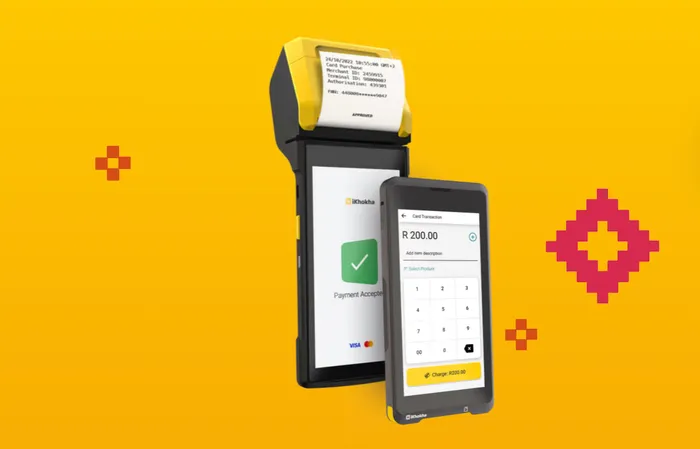
.
Image: iKhokha
Nedbank has made a decisive move in South Africa’s fintech landscape, entering into a binding agreement to acquire 100% of Durban-based payments company iKhokha in an all-cash deal valued at approximately R1.65 billion.
Once finalised, iKhokha will become a wholly owned subsidiary of Nedbank, retaining its brand, leadership team, and entrepreneurial spirit, but now with the backing of one of South Africa’s biggest banks behind it.
For Nedbank, this is far more than a corporate acquisition. It’s a strategic play to accelerate its digital transformation and deepen its footprint in the small and medium-sized enterprise (SME) market, a segment that is both underserved and vital to SA's economic future.
Founded in 2012 by Matt Putman, Ramsay Daly, and Clive Putman, iKhokha set out to solve a pressing challenge for South African entrepreneurs: how to accept payments and manage a business without the friction, cost, or complexity traditionally associated with banking services.
The company’s mobile point-of-sale devices, paired with its feature-rich app, enable merchants to process card payments, track sales, and access working capital through SME cash advances.
Over the years, iKhokha has grown into a trusted partner for thousands of small business owners, blending fintech innovation with grassroots accessibility.
“This is a proud moment for both the founders and the broader iKhokha leadership team,” says iKhokha CEO and co-founder Matt Putman.
“Joining forces with Nedbank gives us the platform to scale our impact, further accelerate product innovation, and unlock new value for our merchants. We remain committed to our mission of empowering entrepreneurs and building tools that help small businesses thrive,” he added.
For SMEs, the acquisition promises a step change in the quality and breadth of tools available, according to the payments company.
By integrating iKhokha’s agile, customer-focused technology with Nedbank’s deep banking infrastructure, small business owners could soon benefit from:
Faster access to working capital
More seamless payment experiences for customers
Integrated banking and business management tools in a single ecosystem
Potentially lower barriers to entry for informal and township-based entrepreneurs
“This acquisition is a pivotal moment in our strategy to empower the SME market,” says Ciko Thomas, Nedbank’s Group Managing Executive for Personal and Private Banking.
“By combining their innovative technology with our deep banking experience, we will provide small business clients with the best-in-class tools they need to thrive,” he noted.
It’s also a boost for financial inclusion, a key focus area for both Nedbank and iKhokha.
“iKhokha’s mission and technology align perfectly with our vision for digital transformation in the SME sector,” Nedbank Group CEO Jason Quinn said.
“Together, we will unlock new opportunities for growth and financial inclusion in South Africa and potentially abroad.”
While iKhokha’s operations have so far been limited to South Africa, Nedbank’s pan-African presence opens the door to potential expansion into other markets.
“There is great alignment across both leadership teams on the synergies that can be unlocked through this transaction,” Putman explained.
“We believe our combined strengths will result in a truly differentiating and highly competitive value proposition for SMEs in the market.”
This acquisition signals a broader trend in South Africa’s tech ecosystem: established financial institutions are no longer just competing with fintechs; they’re partnering with them to accelerate innovation.
For entrepreneurs, that’s good news. It means more resources, better tools, and, hopefully, a faster path to growth.
If the deal clears regulatory approval in the coming months, it could mark one of the most significant steps yet in bridging the gap between traditional banking and the fast-moving world of digital payments in South Africa.
